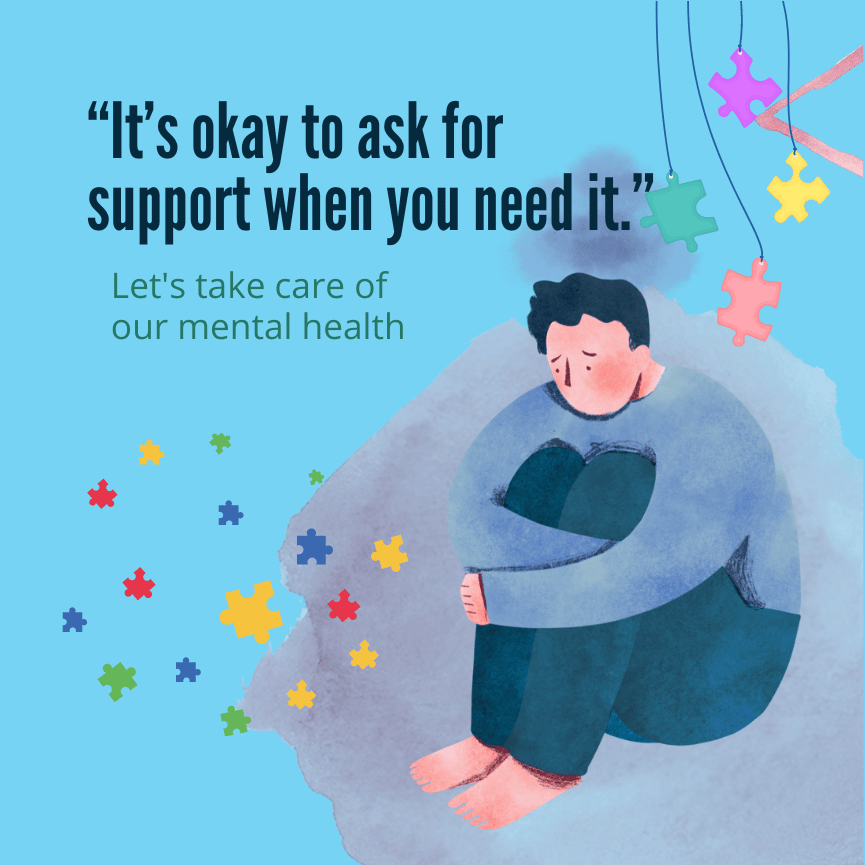
- Jul 23, 2024
- 92 Views
- 0 Comments
Autism And Mental Health Co-occurrence
Understanding the relationship between mental health and autism is crucial for providing comprehensive care. Individuals with Autism Spectrum Disorder (ASD) often face additional mental health challenges, commonly referred to as co-occurring conditions. These conditions can complicate the management of autism and significantly impact the quality of life for those affected. Let's dive into this complex topic to understand better how we can address and support individuals with both autism and mental health conditions.
Autism Spectrum Disorder (ASD) is a neurodevelopmental condition characterized by difficulties in social interaction, communication, and repetitive behaviors. The spectrum nature of autism means it affects individuals differently, with varying degrees of severity and manifestations. Understanding these characteristics is essential for recognizing how autism interacts with other mental health conditions.
Common Co-occurring Mental Health Conditions
Many individuals with autism also experience other mental health conditions. The most common include:
Anxiety Disorders: Many people with autism struggle with anxiety, which can manifest as excessive worry, panic attacks, or specific phobias.
Depression: Depression can occur due to social isolation, difficulty in communicating, and the challenges of managing daily life with autism.
Attention-Deficit/Hyperactivity Disorder (ADHD): ADHD is common in individuals with autism, characterized by inattentiveness, hyperactivity, and impulsiveness.
Challenges in Diagnosing Co-occurring Conditions
Diagnosing co-occurring conditions in individuals with autism is challenging due to overlapping symptoms. For instance, anxiety can present as restlessness or repetitive behaviors, which are also common in autism. This overlap can lead to misdiagnosis or underdiagnosis, making it crucial for healthcare providers to be well-versed in both autism and mental health conditions.
Impact of Co-occurring Conditions on Daily Life
The presence of co-occurring conditions can exacerbate the challenges individuals with autism face. These impacts include:
Social Interactions: Anxiety and depression can make social interactions even more daunting, leading to increased isolation.
Academic and Work Performance: Co-occurring conditions can affect concentration, motivation, and overall performance in school or work.
Family Dynamics: The stress of managing multiple conditions can strain family relationships and dynamics.
Therapeutic Approaches
Effective management of co-occurring conditions requires a multifaceted approach:
Behavioral Interventions: Applied Behavior Analysis (ABA) and other behavioral therapies can help manage both autism and co-occurring conditions.
Cognitive Behavioral Therapy (CBT): CBT can be particularly effective for addressing anxiety and depression in individuals with autism.
Medication Management: Medication may be necessary for managing severe symptoms of anxiety, depression, or ADHD.
Importance of Early Intervention
Early intervention is crucial in managing co-occurring conditions. Identifying symptoms early can lead to timely support and better outcomes. Early therapeutic interventions can mitigate the severity of both autism and associated mental health conditions, improving the individual’s overall quality of life.
Role of Healthcare Providers
Healthcare providers play a vital role in managing co-occurring conditions. A multidisciplinary approach, involving psychologists, psychiatrists, neurologists, and other specialists, ensures comprehensive care. Ongoing training and education for providers about the nuances of autism and mental health are essential.
Support Systems for Individuals and Families
Support systems are indispensable for individuals with autism and their families. Community resources, support groups, and educational programs can provide much-needed assistance and guidance. These resources help families navigate the complexities of managing co-occurring conditions.
Case Studies: Rihan's Journey with Autism and Anxiety
Background:
Rihan, a 16-year-old with autism, faced severe anxiety impacting his social interactions, routine, and academic performance.
Challenges:
Social Anxiety: Avoidance of social activities.
Routine Disruption: Intense anxiety with changes in routine.
Academic Pressure: Stress from school affecting performance.
Therapeutic Approach:
CBT: Tailored for autism, focusing on managing negative thoughts and gradual exposure to anxiety-provoking situations.
Medication: Prescribed to help manage anxiety symptoms, carefully monitored for side effects.
Routine Management: Structured daily routine and relaxation techniques to handle disruptions.
Successes:
Social Interactions: Improved comfort in social situations and formed friendships.
Academic Performance: Better focus and confidence in school.
Routine Adaptability: Enhanced ability to manage routine changes.
Insight:
Rihan’s story illustrates how a tailored therapeutic approach can lead to significant improvements in managing co-occurring conditions. It underscores the value of a comprehensive treatment plan for achieving positive change.
Strategies for Managing Co-occurring Conditions
Developing effective coping mechanisms is key to managing co-occurring conditions. Strategies include:
Routine and Structure: Establishing a consistent daily routine can reduce anxiety and improve focus.
Mindfulness and Relaxation Techniques: Techniques such as deep breathing, meditation, and yoga can help manage stress and anxiety.
Personalized Support Plans: Individualized support plans tailored to the person’s unique needs can be highly effective.
Educational Accommodations
Educational accommodations are crucial for students with autism and co-occurring conditions. Individualized Education Programs (IEPs) can provide customized support and resources, while specific classroom strategies, such as preferential seating and modified assignments, can enhance learning.
Advocacy and Policy
Advocacy for individuals with autism and co-occurring conditions is essential. Understanding legal rights and protections can empower families to seek appropriate support. Recent developments in policy and legislation aim to improve access to care and resources for these individuals.
Future Directions in Research and Treatment
Research continues to evolve in understanding and treating co-occurring conditions. Emerging therapies, such as neurofeedback and genetic studies, offer hope for more effective interventions. Ongoing research into the neurobiological underpinnings of autism and mental health conditions promises to yield new insights and treatment options.
Addressing co-occurring conditions in individuals with autism requires a comprehensive, multi-faceted approach. By understanding the complexities of these conditions, we can provide better support and improve the quality of life for those affected. Continued education, early intervention, and robust support systems are essential in this endeavor.



Comments - 0 comments till now